Senior Official Says Iran Paying $100 Billion In Energy Subsidies
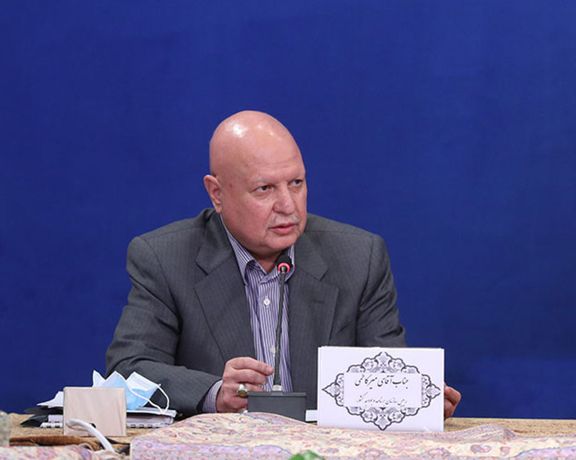
Iran is providing more than $100 billion annually in energy subsidies to citizens, a senior official says, amid a steep rise in food prices and general uncertainty.

Iran is providing more than $100 billion annually in energy subsidies to citizens, a senior official says, amid a steep rise in food prices and general uncertainty.
The head of the Planning and Budget Organization Massoud Mirkazemi told state television that the government is in the process of “reforming the subsidy system…and we are close to final decisions.” He repeated the official argument that the government wants the subsidy to go to the people instead being wasted in different ways.
His remarks signal the implementation of a long-suspected plan to make hydrocarbon fuels and electricity more expensive. Iran has the world’s second cheapest gasoline after Venezuela and the cheapest electricity for more than four decades.
One gallon of gasoline is around 22 cents and citizens are said to be using too much electricity and natural gas which are similarly offered at extremely low rates.
However, inflation has stood above 40 percent in the past 12 months and food prices have risen even faster. As the people’s purchasing power has declined, many expect another round of protests. An increase in energy prices might be too much for the population to bear.
Mirkazemi said that in addition to energy subsidies, the government is providing another $20 billion to keep food and medication affordable.
As it tries to save financial resources after four years of tough United States’ sanctions, the government might be risking a popular backlash.
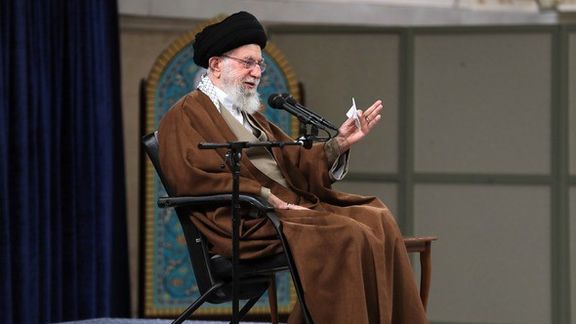
Iran’s Supreme Leader Ali Khamenei addressed workers Monday as rising prices have led to protests, deep apprehension and political uncertainty in the country.
After days of chaos for people and politicians, with bread prices rising and essential commodities such as cooking oil disappearing from shelves, Khamenei’s unannounced meeting with workers’ representative appeared to be aimed at showing him as a supporter of labor.
In his speech at the event, however, Khamenei did not mention the economic crisis and rising prices and repeated a series of rhetorical statements that often Islamic Republic officials utter more as a wish-list than practical economic plans.
Khamenei called workers “the supporting pillar of production”, and repeated slogans such as “increasing job opportunities”, “equitable relationship between labor and capital”, and “job security”.
Unemployment, partial employment and declining wages have plagued Iran’s workers, specially in the last decade, when international and American sanctions have weakened the economy and a huge wealth gap has opened in society.
The highly corrupt “privatization” of government enterprises has led to the closure of many factories and companies, leaving tens of thousands of workers unemployed or unpaid for long periods of time. Labor unrest since 2017 has led to hundreds of protests and strikes.
Without mentioning the above-40-percent inflation rate and the politically sensitive rise in bread prices, Khamenei tried to express support for President Ebrahim Raisi’s government and called for all entities to support his administration.
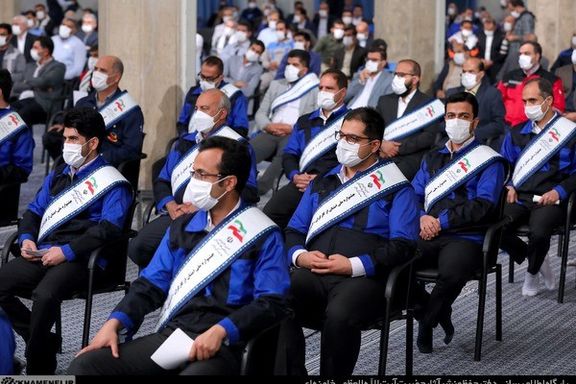
Raisi is under fire even by some of his hardliner supporters for appearing as disorganized and clueless over the handling of the economic crisis, although his administration has taken credit for circumventing United States’ sanctions and exporting one million barrels of oil per day.
Khamenei also tried to show that the regime he presides over values the contribution of workers, but the first example he mentioned related to the 1980s and the war with Iraq, when he said 14,000 workers were “martyred” in battle. He also thanked workers to “standing up” to US sanctions and keeping production alive.
In fact, the sanctions have cost Iran a lot of non-oil sector production losses and the closure of thousands of small producers, according to what officials and government-controlled media have reported in recent years.
Khamenei also claimed that workers have supported his regime but admitted that workers have “rightfully” protested “wrong privatization”.
He went on to say that contrary to Communist system and “exploitative” capitalism the Islamic government is appreciative of workers contribution.
An average Iranian worker now earns around $150 a month and with rising prices cannot afford most daily food items, such as meat or fruits. In 1970s, before the revolution and the Islamic Republic, an unskilled worker earned around $140, when the Iranian currency was 4,500-fold stronger than today (US dollar at 70 rials in 1978 compared with 285,000 now). Skilled workers earned as much $500 a month in mid-1970s, which provided incomparable purchasing power at the time.
The Supreme Leader reiterated his support for Iran’s closed economic system, emphasizing that imports should be minimized and domestic production increased, although recently there have been complaints by officials and politicians about the low quality of Iranian cars, while imports remain restricted.
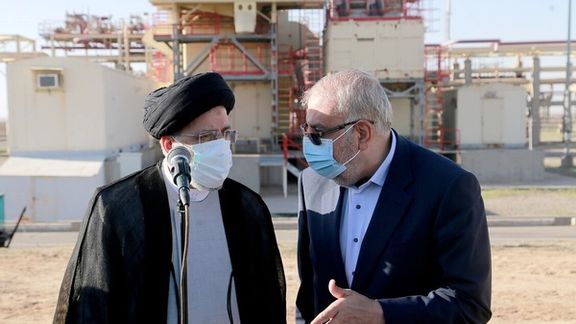
Iranians wonder what has happened to tens of billions of dollars in recent oil revenues, when the economy weakens, the currency keeps falling, and prices rise.
With the deterioration of the economic situation in recent days and the danger of a social explosion, even state-controlled media publish interviews and comments about the mystery of oil revenues and higher taxes collected by President Ebrahim Raisi’s government.
According to official statements by the president and the oil minister, Iran has earned at least $45 billion in the past 12 months from higher exports and prices of crude oil and refined oil products. This is double of what Iran managed to earn in 2020, without any visible impact on the economy.
Hossein Raghfar a professor of economics in Zahra University in Tehran told the Iranian Labour News Agency, ILNA, that the money is being taken out of Iran by corrupt officials.
“The question now is why the impact these revenues are not being felt,” Raghfar said, and insisted, “One of the main reason is flight of capital from the country.”
He did not provide any details or evidence for his claim of massive capital flight, but a recent scandal surrounding the family of the parliament speaker traveling to Turkey for luxury shopping and reportedly buying two expensive apartments there for $1.6 million, speaks volumes about corruption and money taken out of the country by the elite.
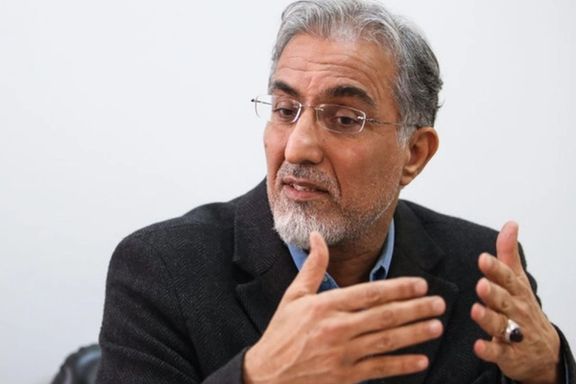
A Turkish nationwide news channel, TGRT, not only confirmed claims by Iranian sources that Mohammad Bagher Ghalibaf (Qalibaf) family purchased apartments but reported that 500 luxury units in the same high-rise complex have been purchased by families of Iranian officials. That would mean around $500 million of illicit funds taken out of the country and invested in just one location in Turkey.
Raghfar said that if government claims of exporting around one million barrels of crude per day are true, Iran can expect around $100 billion of revenue from its traditional financial lifeline. That kind of money should stop the fall in the value of rial, which reached a four-month low on Saturday trading at 285,000 to the US dollar. Just in late 2017, before the United States pulled out of the nuclear agreement known as JCPOA, the rial was trading at 33,000 to the dollar – an almost ninefold fall in less than five years.
The former head of the central Bank, Abdolnaser Hemmati, issued a short video on Sunday saying that the Raisi administration can be called “The sultan of printing money.” Raisi has been claiming that he stopped his predecessor’s practice of generating money for the government by printing more banknotes, but Hemmati said that according to new central bank date the government printed close to $6 billion additional money from August to March, which fuels inflation.
Raghfar also drew attention to large quasi-government companies not paying any taxes, and instead receiving subsidies. These companies are run by political appointees who are friends or family members of top government officials and can easily share funds with others in their circle.
He went to say that currently all major government institution are controlled by conservative (loyal to Supreme Leader Ali Khamenei) and the Raisi government has no excuse of disunity in failing to improve the economy. Why the government is eliminating subsidies for essential commodities, raising the price of bread fivefold, he asked, and said it is not clear what is happening to public wealth.
“Iran’s economy is hostage to various mafia interests, who spend a lot of [public] money and embezzling huge funds,” Raghfar said.
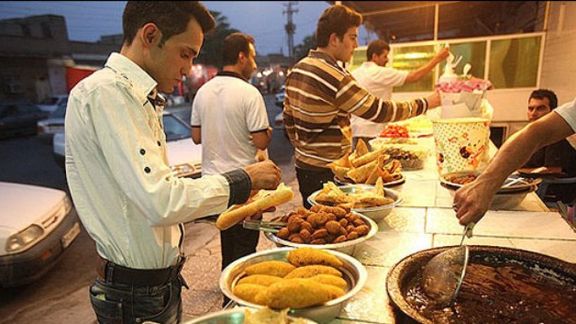
The controversy surrounding an unusual rise in bread prices in Iran led to confusion and heated debates at the Iranian parliament, Majles, Sunday morning.
The Majles held a session behind closed door to probe into the cause of the problem, but the parliament's presidium member Alireza Salimi told the press that as questions put to Economy Minister Ehsan Khandouzi and Agriculture Minister Javad Sadatijejad dragged on and on, the Majles continued the debate in an open session.
The political scene appeared to be in chaos as parliament scrambled to appear active, demanding answers from the government, while officials seemed unable to present coherent explanations.
According to Salimi, the ministers told the parliament that reasons behind the recent flour price increase include the war in Ukraine, the draught in the region and Iran's problems in importing wheat as protests took place over the weekend in the oil-rich Khuzestan province.
Salimi added that lawmakers called on the government to clearly name the senior officials responsible for economic decisions. This was because of discrepancies in government statements about the cause the rising price of bread and about how to sort out the problem.
Meanwhile, Majles Speaker Mohammad Bagher Ghalibaf told ISNA news websitethat price increases were unacceptable and the government should have first issued electronic coupons for underprivileged citizens to make sure they could still buy bread at a subsidized rate. Ghalibaf also revealed that the government will be issuing electronic coupons for other commodities such as cheese.

Ghalibaf said the way the government dealt with the rising prices of pasta and bread caused serious concern as people thought this was the beginning of more widespread price increases.
He also criticized first vice president Mohammad Mokhber for not showing up in parliament to offer explanations to lawmakers.
In a belated explanation on the state television late on Saturday night, Mokhber said that "The subsidy on bread and medicine will not be cut off." He added: "We have allocated a subsidy to traditional bread which according to legislation will be paid via electronic coupons. Subsidies have also been considered for other essential commodities to compensate for rising prices." Mokhber reiterated that these subsidies will be paid into the accounts of the heads of families before government raises prices."
While the vice president spoke about government assistance plans, bread prices have already risen fivefold in the past few days.
Mokhber's remarks convinced few people as others including Vice President for Economic Affairs Mohsen Rezaei offered a different explanation. Rezaei said on state TV that everyone in Iran will be getting 2 to 3 million rials (8-12 dollars) in cash handout from the government every month. However, he had to immediately return to the TV studio and deny his own statement on national television.
Remarks by Ghalibaf and Mokhber indicated that bread rationing is part of the government's plan to tackle rising prices, but officials disagreed about the size of the ration.
During Sunday, Iran International TV showed footage of Iranian Lawmakers at the Majles angrily reacting to the government's chaotic policy on pricing and distribution of bread.
According to Didban Iran website lawmaker Ahmad Hossein Fallahi charged that the ministers who reported to the Majles on Sunday had nothing new to say about the problem or its solution. The website quoted lawmaker Hojjatollah Firouzi as saying that the situation has given rise to concerns at the parliament, and another lawmaker Ebrahim Azizi criticized the government for not offering explanations to the people before the price rise.
Iranian journalist Solmaz Ikdar told Iran International that lawmakers have realized Raisi is unpopular, and his policies have failed, so they try to distance themselves from his administration.
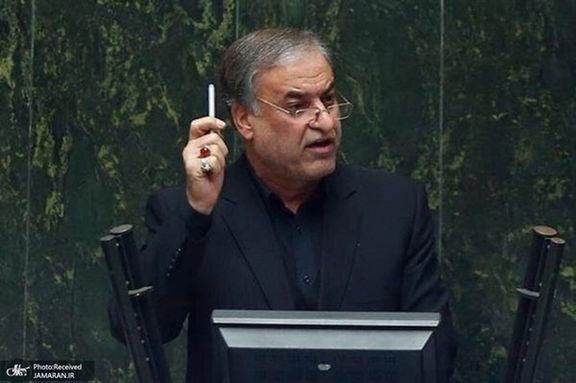
An Iranian lawmaker has called on the authorities to tell the people that the Vienna talks to restore the 2015 nuclear deal will yield no results.
Mahmoud Ahmadi-Bighash, who is a member of the parliament's National Security and Foreign Policy committee, said on Saturday that there is no news about the revival of the Joint Comprehensive Plan of Action (JCPOA) because it has reached a dead-end.
He said the fate of the JCPOA is entangled with the lives of people and they are subconsciously invested in the talks, therefore “if we tell people the truth about the JCPOA... they will know what to do”.
“Our differences with the United States and the Europeans are fundamental”, he noted, saying that “the Americans believe that we should give up our principles while we want them to give up their arrogant and bullying behavior”.
Ahmadi-Bighash added, “We cannot give up our revolutionary principles because they are inherent in our religious obligations”, claiming that the issue of the Revolutionary Guard being listed by the as a terrorist organization by the US is just an excuse.
He praised relations with Russia and China and emphasized the Islamic Republic's motto of "self-reliance", but except Israel, the lawmaker said, Iran should have relations with all counties.
Negotiations, which started in Vienna in April 2021 to revive the Obama-era nuclear deal, JCPOA, have been on a protracted pause since March 11, as the Islamic Republic demanded removing its Revolutionary Guard (IRGC) from a US list of terrorist organizations.
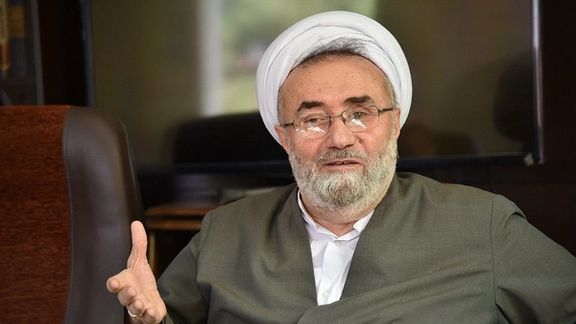
The editor of one of Tehran's leading pro-regime newspapers has called on President Ebrahim Raisi to step down if he cannot solve Iran's economic problems.
While rising bread prices have turned even some of Raisi's supporters against him, Massih Mohajeri, the editor of Jomhouri Eslami (Islamic Republic) newspaper who usually criticizes the administration's policies wrote in an editorial on Saturday, "Now that it has become clear that you cannot solve the problems, step down bravely and leave the job to those who can do it and save the people from this dangerous quagmire."
The editorial charged that "Media close to the administration label those who criticize you for the problems you have created as counter-revolutionaries who work for Israel and the United States." It went on to say that some of Raisi’s supporters are also protesting the government's policies.
Mohajeri further asked, "The president should say how much time does he need to understand that problems cannot be solved by just talking and the government cannot be run in this way." He added: "Blaming all shortages on smugglers is not a solution,” and if that is the problem, why the government does not stop them.
Ukraine and nuclear talks with the US
"If the problem of flour shortage is caused by the war in Ukraine, why you don’t condemn Russia's aggression against Ukraine and not try to stop Vladmir Putin from continuing the invasion, which threatens the livelihood of a major part of the world?" Mohajeri asked Raisi.
He also asked Raisi why he does not do anything to reach an agreement with the United States. "You said you will not tie the country's fate to the [nuclear] negotiations, but by not doing anything, you have created new problems for the nation."
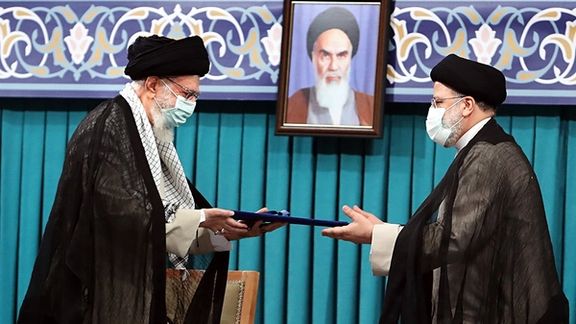
Many in Iran know it is Supreme Leader Ali Khamenei who decides key foreign policy and other state matters, but semi-official media would not dare to blame the economic crisis directly on Khamenei.
Mohajeri addressed Raisi that "If the instability of the government and the current dangerous situation have not been created by infiltrators, then they must be attributed to the poor management of your economic ministers."
He reminded that the price of bread in Iran did not rise even during the war with Iraq in the 1980s. He warned that raising the price of flour and rationing bread are like setting fire to gunpowder. Further warning that there are several individuals affiliated with the deviant group [jargon referring to those close to former President Mahmoud Ahmadinejad], Mohajeri charged that these elements could be attempting to unseat the current government and asked Raisi to take this warning seriously.
Economic crisis main topic of media
On Saturday, most newspapers in Tehran which are usually silent about economic problems, covered the shortage of these items in extensive stories, although the government's own newspaper, Iran, and the hardline daily Khorasan claimed that people were happy about the situation and "over 62 percent of Iranians said they were happy about the government's performance in a poll that was conducted before the unusual bread price rise."
At the same time, Mostafa Hashemi Taba, a former presidential candidate, said in an interview published by Didban Iran website that "the Raisi Administration has totally lost its social capital." He said the government wants to be portrayed as a revolutionary government abroad, but it wishes to adopt liberal economic policies inside the country. He said there are only two solutions to the problem: Either the government should be able to distribute all of the people's needs, or it has to resort to rationing essential commodities.
Meanwhile, economist Hossein Raghfar told Khabar Online website that the government's policy over bread is not transparent. He dismissed the official statements about flour being smuggled out of Iran as "fabrication" and maintained that the problem is the falling value of the currency, which he said rose from 10,000 rials per dollar to 35,000 rials in 2011, and from 30,000 rials in Janyary 2018 to 320,000 rials in January 2021. He charged that rich people in power benefitted from all of these changes while they ignored the interests of the ordinary Iranians.